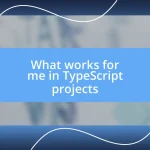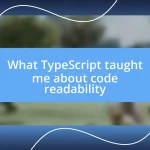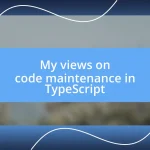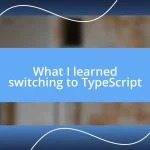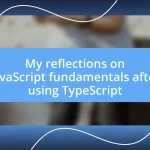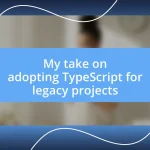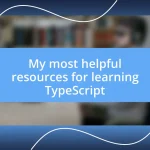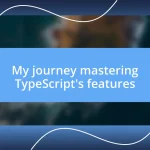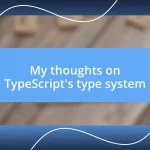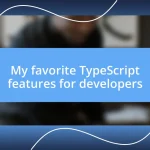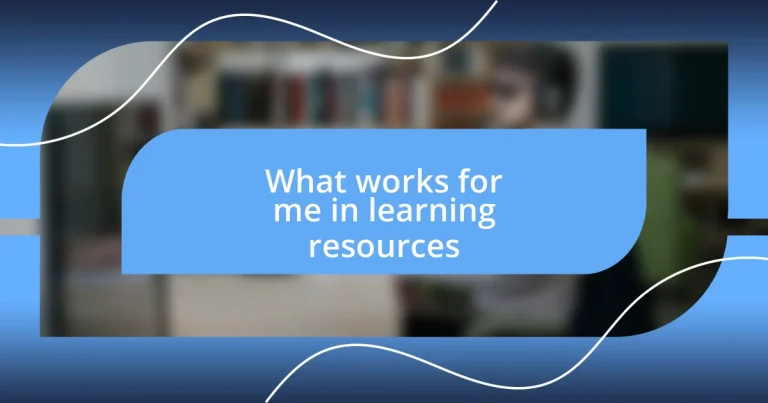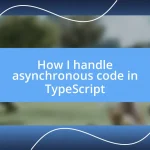Key takeaways:
- Understanding personal learning preferences and styles, such as interactive tools and engaging formats, significantly enhances the educational experience.
- Community learning fosters accountability, diverse perspectives, and retention, making collaboration essential in the learning process.
- Tracking progress through reflection and visual aids helps identify growth and adapt learning strategies for better outcomes.
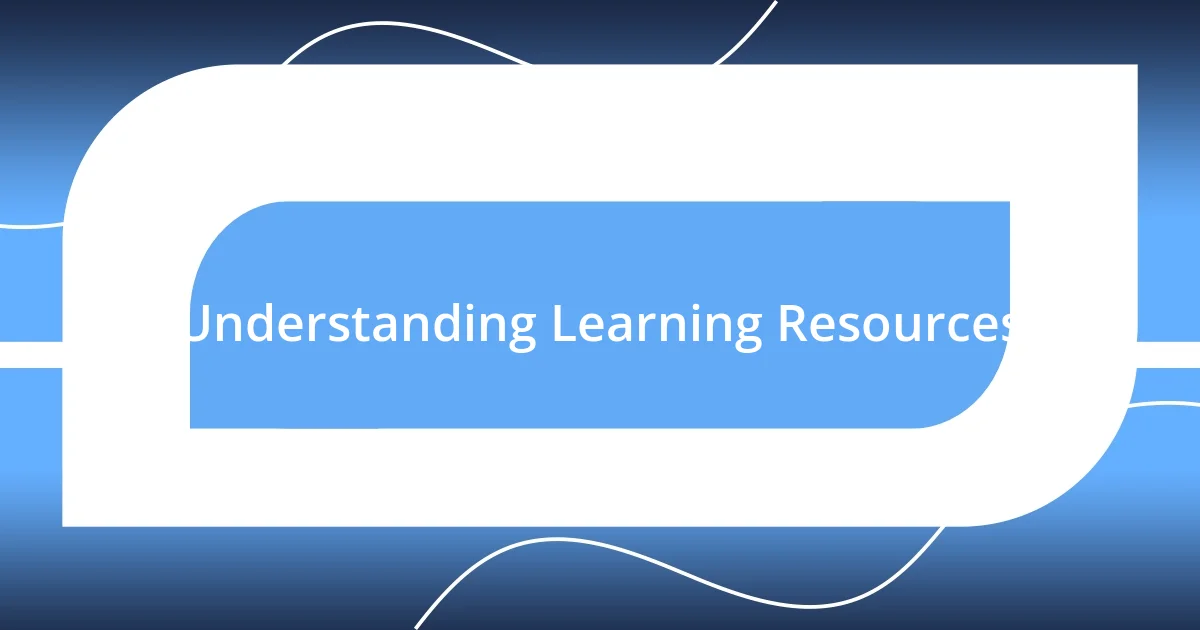
Understanding Learning Resources
Understanding learning resources is all about recognizing the various tools and materials that can enhance our educational journey. I remember the first time I stumbled upon an online course—it felt like uncovering a treasure chest of knowledge. What made it so exciting was not just the access to expert content but the community of learners I connected with along the way.
When we explore different types of learning resources, it’s crucial to consider what resonates with us personally. For instance, I gravitated towards podcasts because they fit seamlessly into my daily routine—perfect for those moments when I’m cooking or commuting. Isn’t it fascinating how the medium can change our connection to the content?
Moreover, reflecting on learning preferences can reveal a lot about what works best. For me, visuals like infographics and videos often crystallize concepts more effectively than text alone. This makes me think: How well do you know your own learning style? Understanding what engages you can lead to a more fulfilling and effective learning experience.
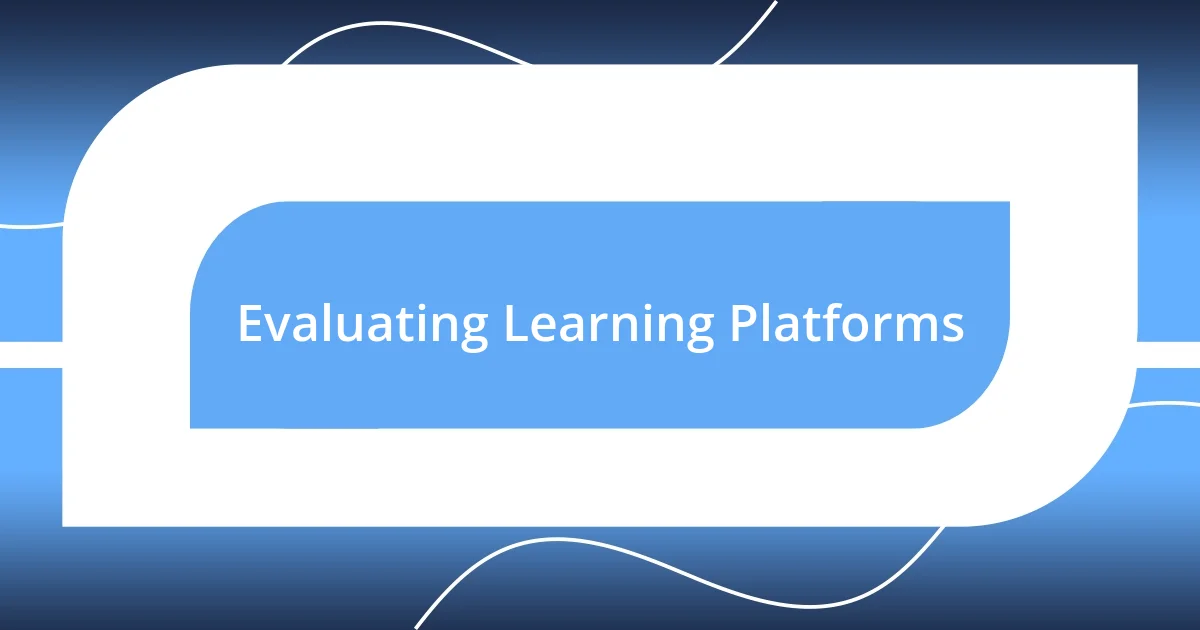
Evaluating Learning Platforms
Evaluating learning platforms requires a careful assessment of their features and how they align with personal goals. I’ve tried various platforms, and it’s amazing how some resonate more with me than others. For instance, I found that a platform with interactive quizzes kept me engaged, allowing me to apply what I was learning right away. Do you ever feel more invested when you’re actively participating in your learning?
Additionally, user experience is vital. A platform that feels intuitive and user-friendly enhances the learning process significantly. I remember using a platform that had a cluttered interface—navigating through it was frustrating, and I often lost motivation. Have you had a similar experience? Finding a streamlined platform can make all the difference in sustaining your enthusiasm for learning.
Finally, course variety is worth examining. Some platforms offer a wide range of topics, while others might specialize in a niche area. I appreciate platforms that give me the flexibility to explore different subjects at my own pace. Do you think diversity in course offerings influences your learning journey as well?
| Criteria | Platform A | Platform B | Platform C |
|---|---|---|---|
| Interactivity | High | Medium | Low |
| User Experience | Intuitive | Cluttered | Simplistic |
| Course Variety | Wide | Niche | Moderate |
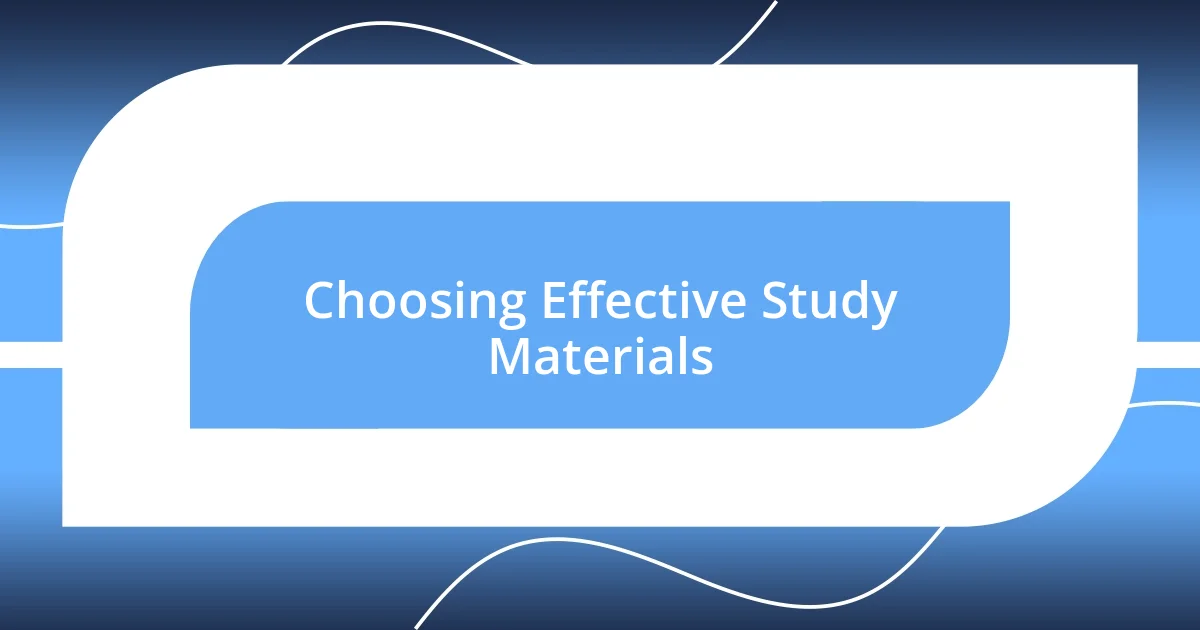
Choosing Effective Study Materials
When it comes to choosing effective study materials, I find that a combination of personal relevance and content quality is key. A few years ago, I purchased a textbook that promised to offer deep insights into a subject I was keen on. While it contained a wealth of information, I soon realized that its dense format made it hard for me to stay focused. I’ve learned that materials that encourage active engagement—like workbooks or guided exercises—give me a sense of accomplishment and retention. This, in turn, makes the entire learning experience so much more rewarding.
- Look for materials that align with your interests; passion drives engagement.
- Choose resources that cater to your learning style—visual, auditory, or kinesthetic.
- Opt for interactive materials that require participation, as they can increase retention.
- Seek materials with real-life examples to connect the concepts to practical applications.
- Read reviews or ask peers about their experiences with specific resources; I’ve found this saves time and frustration in choosing the right fit.
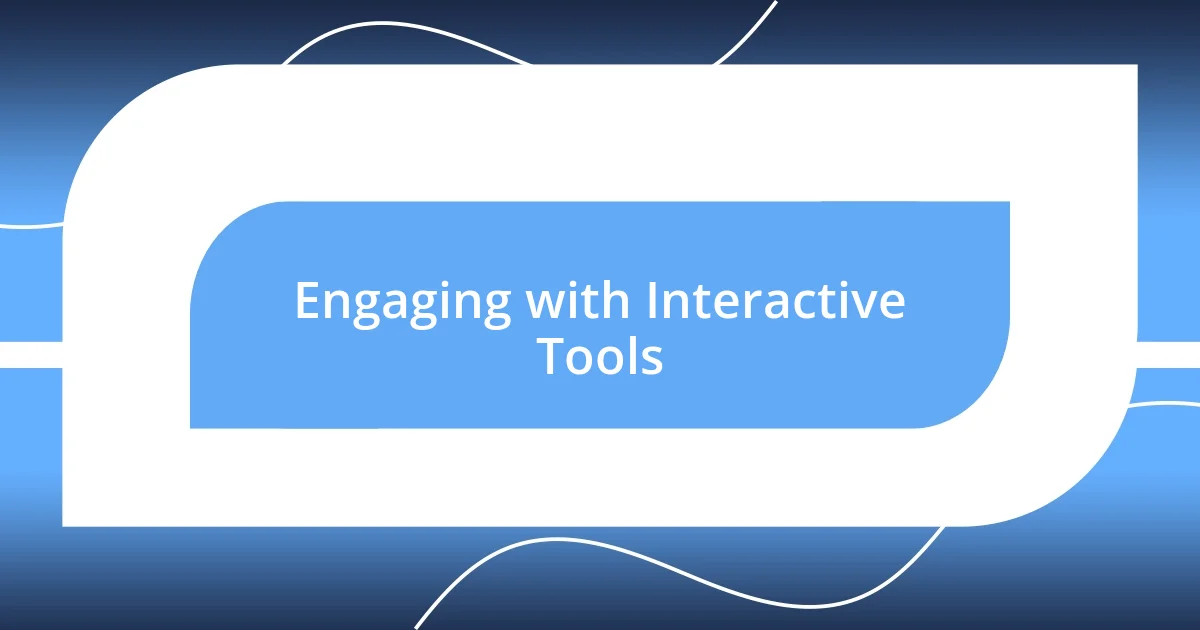
Engaging with Interactive Tools
Engaging with interactive tools significantly enhances my learning experience. I remember using a collaborative platform that allowed me to work on projects with peers in real-time. The thrill of brainstorming ideas together made the learning process feel alive and dynamic. Have you ever felt the energy of teamwork elevate your understanding of a topic?
Moreover, gamified elements in learning platforms have caught my interest. For instance, I once completed a course that relied heavily on game mechanics—like earning badges and leveling up after completing modules. This approach kept me motivated and made learning enjoyable. It begs the question: don’t you think making learning feel like a game can break down the intensity that often comes with studying?
Lastly, I’ve also found that instant feedback is crucial. While practicing through simulations, I received immediate insights on my performance, which helped me grasp concepts much better. Reflecting on past mistakes in a supportive environment built my confidence, turning those moments into learning opportunities. Isn’t it satisfying when you receive feedback that pushes you to improve?
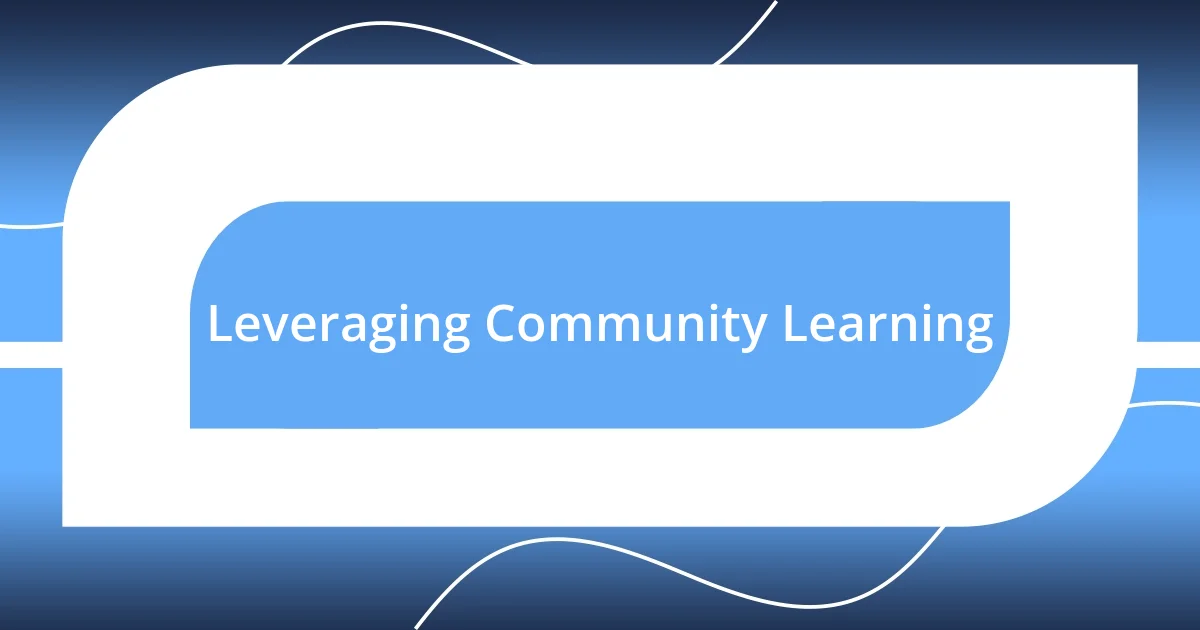
Leveraging Community Learning
I’ve often discovered that learning doesn’t have to be a solitary journey. Joining study groups or online forums has transformed my experience, as exchanging ideas with others creates a vibrant learning culture. I vividly recall a time when I participated in a community-driven discussion about a challenging topic; the perspectives shared were eye-opening and helped me see the subject in a completely different light. Have you ever found that someone else’s insights can illuminate aspects you never considered?
Another powerful aspect of community learning is the encouragement to hold each other accountable. In one of my ongoing study groups, we set weekly goals and shared our progress. Knowing that others are counting on me to deliver enhanced my motivation and kept me on track. Isn’t it amazing how the simple act of sharing our learning journeys fosters a sense of commitment? This collective drive not only boosts individual performance but also creates lasting friendships along the way.
Teaching others what you’ve learned can be one of the most effective ways to solidify your understanding. I remember tutoring someone on a complex concept, and the process forced me to revisit and clarify my own knowledge. The sense of fulfillment from helping another person grasp a challenging topic was exhilarating. Have you ever experienced that rewarding “aha” moment when you realize your explanation just clicked? That’s the beauty of community learning—it fosters connections and enhances retention through the collaborative exchange of ideas.
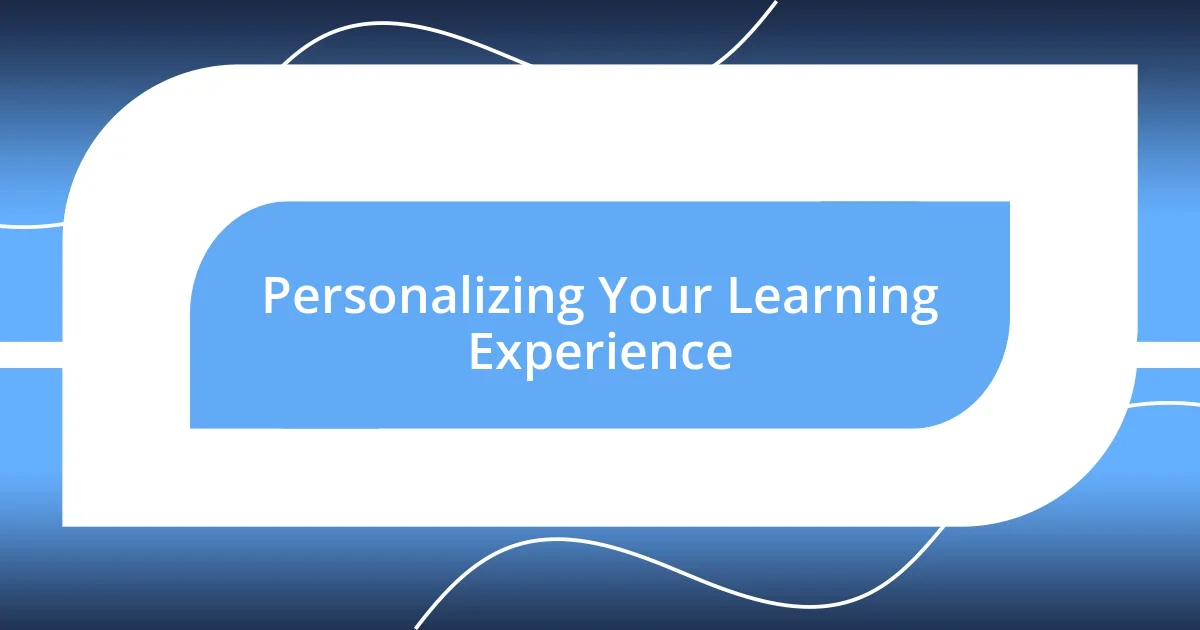
Personalizing Your Learning Experience
Personalizing your learning experience is essential to ensuring that what you learn truly resonates with you. For example, I routinely adjust my study environment based on how I feel each day. Sometimes I prefer a quiet space with minimal distractions, while other times, a café buzzing with energy feels invigorating. Have you ever noticed how your surroundings can affect your level of focus and engagement?
Utilizing diverse learning formats has also been a game-changer for me. I’ve realized that while I grasp concepts effectively through reading, watching a documentary or attending a workshop can bring those ideas to life in a different way. One memorable instance was when I attended a hands-on seminar; seeing the application of theory reinforced my understanding dramatically. Isn’t it powerful when you can connect knowledge with real-world scenarios?
Moreover, I’ve discovered that setting my own learning goals dramatically enhances my journey. Instead of sticking to a rigid syllabus, I tailor my objectives based on my interests and curiosities. During a time when I felt stagnant, I decided to embark on a mini-project related to a subject I was passionate about. This shift not only reignited my motivation but also honed my skills in an area I genuinely cared about. Have you ever found that pursuing your passions makes the learning process not just a task but an exciting adventure?
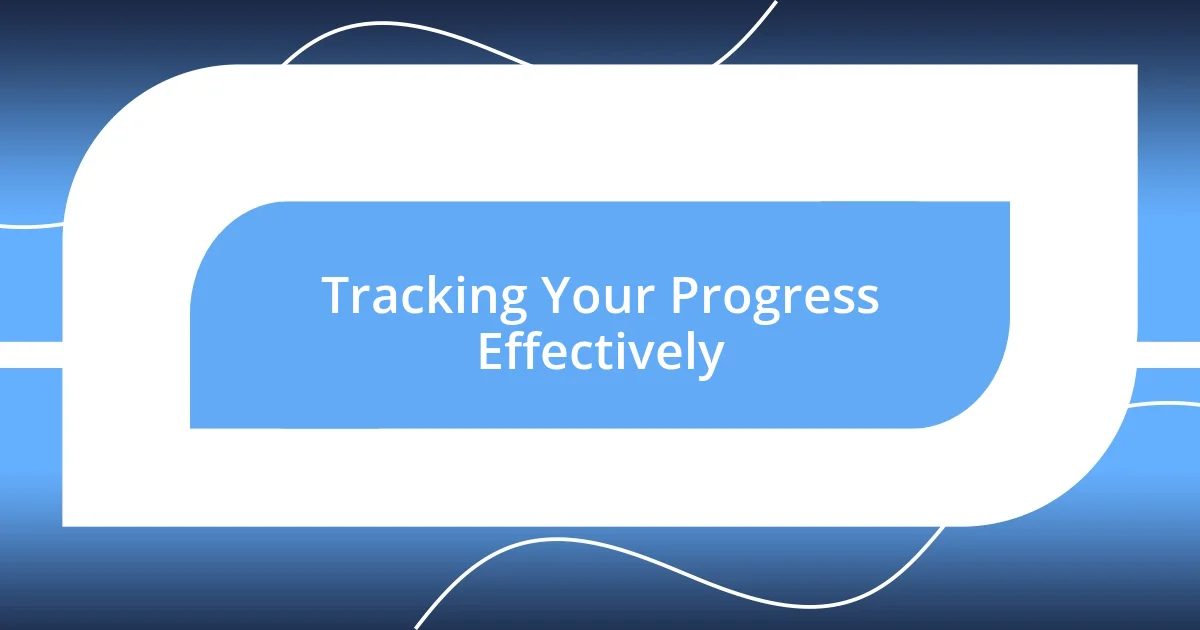
Tracking Your Progress Effectively
Tracking your progress effectively can be a game changer in your learning journey. I’ve found that keeping a dedicated journal helps me reflect on what I’ve learned, capturing both my successes and the areas I need to improve. It’s like having a conversation with my past self; reviewing those entries allows me to celebrate my growth while also identifying patterns in my learning. Have you ever looked back at your progress and been surprised by how far you’ve come?
Another strategy I love is using a visual tracker, like a chart or a timeline, to mark milestones in my learning. When I completed a challenging course last year, I created a colorful chart that mapped out each module I finished. Watching the sections fill in was incredibly satisfying and provided a tangible sense of achievement. Does seeing your progress visually motivate you too?
I also rely on regular check-ins with myself to assess my goals and adapt my strategies. For instance, after diving deep into a topic and feeling a bit overwhelmed, I took a step back to evaluate what methods were truly resonating with me. This reflection led me to pivot my approach, focusing more on practical applications rather than theory alone. Isn’t it interesting how a quick pause to evaluate can redirect your path and enhance your learning efficiency?
